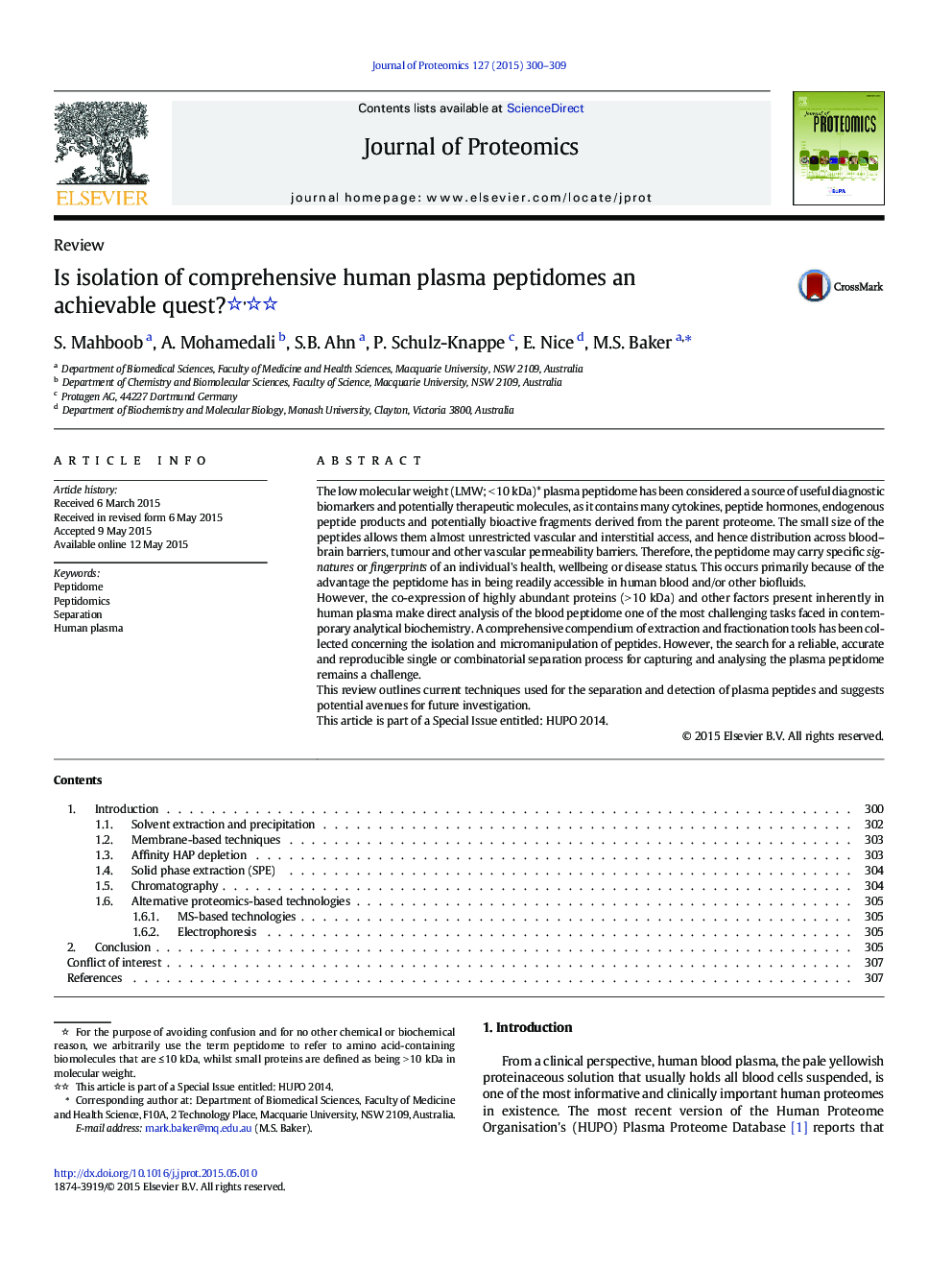| کد مقاله | کد نشریه | سال انتشار | مقاله انگلیسی | نسخه تمام متن |
|---|---|---|---|---|
| 1225444 | 968223 | 2015 | 10 صفحه PDF | دانلود رایگان |
The low molecular weight (LMW; < 10 kDa)* plasma peptidome has been considered a source of useful diagnostic biomarkers and potentially therapeutic molecules, as it contains many cytokines, peptide hormones, endogenous peptide products and potentially bioactive fragments derived from the parent proteome. The small size of the peptides allows them almost unrestricted vascular and interstitial access, and hence distribution across blood–brain barriers, tumour and other vascular permeability barriers. Therefore, the peptidome may carry specific signatures or fingerprints of an individual's health, wellbeing or disease status. This occurs primarily because of the advantage the peptidome has in being readily accessible in human blood and/or other biofluids.However, the co-expression of highly abundant proteins (> 10 kDa) and other factors present inherently in human plasma make direct analysis of the blood peptidome one of the most challenging tasks faced in contemporary analytical biochemistry. A comprehensive compendium of extraction and fractionation tools has been collected concerning the isolation and micromanipulation of peptides. However, the search for a reliable, accurate and reproducible single or combinatorial separation process for capturing and analysing the plasma peptidome remains a challenge.This review outlines current techniques used for the separation and detection of plasma peptides and suggests potential avenues for future investigation.This article is part of a Special Issue entitled: HUPO 2014.
Journal: Journal of Proteomics - Volume 127, Part B, 8 September 2015, Pages 300–309
